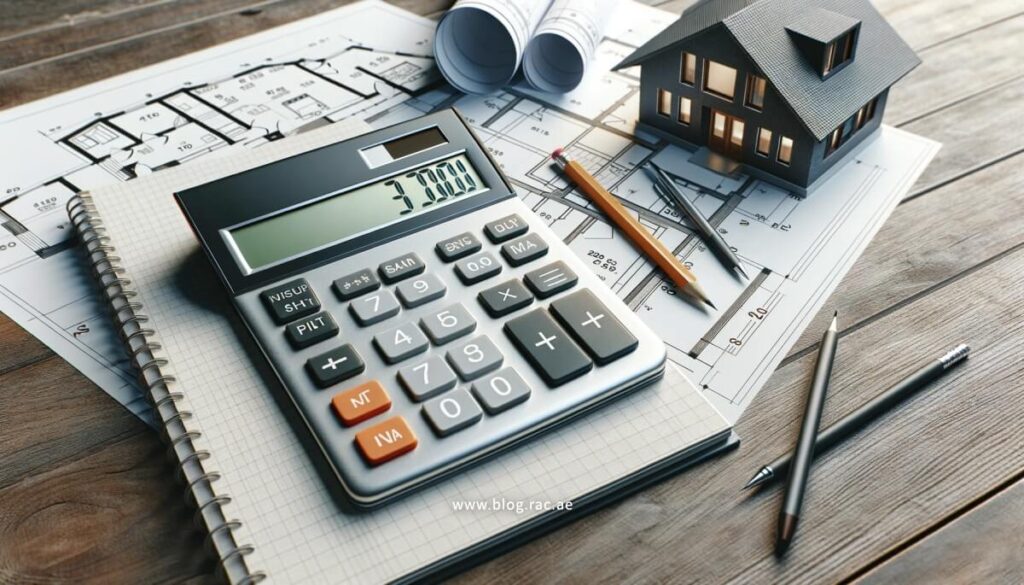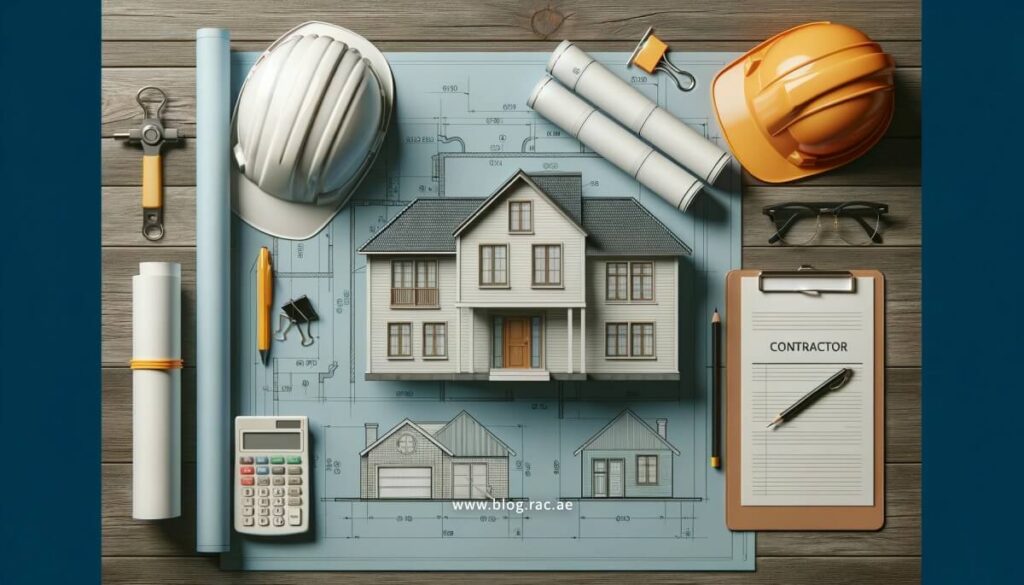
Dubai 2024: Fitout Trends Where Sustainability Meets Innovation
February 19, 2024
Revitalize Your Space: Modernizing Homes with a 90s Aesthetic
March 5, 2024Steering Towards Your Ideal Home Makeover

Setting out on a house makeover adventure stirs a whirlwind of emotions, blending anticipation with trepidation. The vision of converting your living area into a dream abode is exhilarating, yet this journey is laden with challenges that might lead to regrettable outcomes. Success in home renovation hinges on thorough planning, savvy decision-making, and recognizing common pitfalls. This guide is crafted to navigate you through home makeover complexities, providing key insights and tactics to sidestep typical regrets for a gratifying finish.
Table of Contents
Financial Forethought and Strategy
Misjudging Financial Requirements
A prevalent misstep among homeowners is the misestimation of their project’s financial demands. Beyond initial calculations, it’s pivotal to prepare for surprise expenses. Financial guru Naomi Findlay suggests a proactive approach with a financial cushion of 10% to 20% to manage unforeseen costs, ensuring readiness for any scenario and averting the frustration of an incomplete project due to budget shortfalls.

The Importance of a Comprehensive Financial Plan
Lacking a granular financial blueprint can culminate in excessive spending or depleting resources midway. Crafting a detailed financial plan is essential, covering every renovation aspect and enabling informed fiscal choices. This plan serves as your financial compass, directing your project’s course while safeguarding against monetary mishaps.
Selection of Contractors and Materials
The Pitfall of Favoring Low-Cost Bids
Choosing the most affordable bid might appear financially prudent but can ultimately inflate costs due to inferior craftsmanship needing rectification or redoing. Prioritizing quality over price is crucial. Gathering multiple estimates, evaluating the inherent value, and researching the contractor’s reputation for quality work is advisable.

Choosing Timeless Over Trendy
While contemporary finishes and materials might appeal to your aesthetic sensibilities, their allure can fade, becoming outdated and costly to replace. Opting for timeless selections in hardware and tiles ensures your renovation remains both stylish and functional over the long haul.
Design and Functional Flaws
Overlooking Utility and Circulation
Focusing solely on aesthetics at the expense of functionality and flow is a frequent oversight. The spatial arrangement should bolster both comfort and utility. Devoting time to thoughtful planning of door, window, and fixture placements can significantly enhance your daily experience in the renovated space.
Neglecting Storage and Spatial Efficiency
Underestimating storage needs can lead to disorganization and cramped living conditions. Integrating sufficient storage solutions and maximizing spatial efficiency from the outset ensures your home caters to your lifestyle both presently and in the future.
DIY Misjudgments
Overvaluing DIY Cost Savings
The prospect of cost savings through DIY projects is enticing but requires a realistic assessment of your abilities and time availability. Professionals bring expertise and efficiency, often leading to time and cost savings by avoiding mistakes.
Room-Specific Considerations
Kitchen and Bathroom Reflections
Kitchens and bathrooms often undergo renovations but can also harbor the most regrets if not judiciously planned. Opting for durable materials and fixtures, ensuring proper ventilation, and contemplating long-term upkeep and functionality can forestall future disappointments.
External and Structural Reconsiderations
Regrets in Outdoor and Structural Modifications
Outdoor enhancements and structural alterations, like extensive landscaping or garage conversions, might seem attractive but can result in maintenance burdens and unexpected costs. These decisions can also affect your property’s market value and practicality.
Personal Touches and Aesthetic Decisions
Disregarding Personal Aesthetic
Renovating with potential resale in mind might compromise personal aesthetic preferences. Embedding personal touches can create a more homely atmosphere while keeping in mind that these can be altered to appeal to future buyers without diminishing your enjoyment.
Premature Renovation Decisions
Immediate renovation impulses upon acquiring a new home can lead to hasty decisions. Allowing time to familiarize yourself with the space’s dynamics can inform more deliberate and satisfying renovation choices.
Key Takeaways: Navigating Home Makeover Challenges Successfully
Embarking on a home makeover requires meticulous planning and foresight to avoid common pitfalls and ensure a successful transformation. Financial planning is essential to avoid budget shortfalls and manage unforeseen expenses. Selecting quality contractors over low-cost bids ensures superior craftsmanship and reduces future rectification costs. Balancing personal aesthetic preferences with potential resale value creates a homely atmosphere that retains market appeal. Proper planning of utility, circulation, and storage solutions enhances functionality and comfort. Taking time to familiarize yourself with the space before making renovation decisions leads to more satisfying outcomes. By addressing these key areas, homeowners can create a living space that fulfills their needs, reflects their personal taste, and enhances their quality of life.
Conclusion
Embarking on a home renovation is a considerable endeavor that demands meticulous planning and foresight. By recognizing and proactively addressing common regrets, you can steer your project towards success. Aim to create a living space that fulfills your needs, reflects your personal taste, and enriches your life quality. With strategic planning, your renovation can metamorphose your home into the sanctuary you envision.
FAQs
1. Why is financial planning crucial for a home makeover?
Financial planning is crucial for a home makeover to avoid excessive spending and ensure the project is completed without running out of funds. A detailed financial plan covering all aspects of the renovation helps in making informed decisions and managing unforeseen expenses effectively.
2. What common financial mistake do homeowners make during renovations?
A common financial mistake homeowners make is underestimating the project’s financial requirements. This can lead to budget shortfalls and an incomplete project. It’s essential to have a financial cushion of 10% to 20% to manage unexpected costs.
3. How should one approach the selection of contractors for home renovation?
Selecting contractors should involve gathering multiple estimates, evaluating the quality of work, and researching the contractor’s reputation. Prioritizing quality over low-cost bids is important to avoid future costs associated with rectifying poor workmanship.
4. Why is it advisable to choose timeless over trendy materials in renovations?
Choosing timeless materials over trendy ones ensures that the renovation remains stylish and functional for a longer period. Trendy finishes may quickly become outdated and expensive to replace, while timeless selections provide enduring appeal.
5. What are the risks of focusing solely on aesthetics in home renovation?
Focusing solely on aesthetics can lead to neglecting functionality and flow, which are essential for comfort and utility. Proper planning of spatial arrangements, including door, window, and fixture placements, enhances the daily experience in the renovated space.
6. Why is storage and spatial efficiency important in home makeovers?
Integrating sufficient storage solutions and maximizing spatial efficiency prevent disorganization and cramped living conditions. Planning for storage from the outset ensures the home meets lifestyle needs both now and in the future.
7. What are the potential pitfalls of DIY home renovation projects?
DIY home renovation projects can be enticing for cost savings but require a realistic assessment of one’s abilities and time. Professionals bring expertise and efficiency, often saving time and costs by avoiding mistakes that can occur with DIY efforts.
8. What specific considerations should be made for kitchen and bathroom renovations?
For kitchen and bathroom renovations, choosing durable materials and fixtures, ensuring proper ventilation, and considering long-term upkeep and functionality are critical. These considerations help avoid future regrets and maintain satisfaction with the renovations.
9. What should be considered before making outdoor and structural modifications?
Before making outdoor and structural modifications, consider maintenance burdens, unexpected costs, and the impact on property value and practicality. Decisions like extensive landscaping or garage conversions should be evaluated for their long-term benefits and challenges.
10. How can personal aesthetic preferences be balanced with potential resale value in renovations?
Balancing personal aesthetic preferences with potential resale value involves incorporating personal touches that create a homely atmosphere while ensuring they can be altered easily for future buyers. This approach maintains personal enjoyment and market appeal.
11. Why is it important to avoid premature renovation decisions after acquiring a new home?
Avoiding premature renovation decisions allows homeowners to familiarize themselves with the space’s dynamics. Taking time to understand how the space functions and feels can inform more deliberate and satisfying renovation choices.
12. What are the benefits of having a comprehensive financial plan for a home makeover?
A comprehensive financial plan helps avoid excessive spending, ensures resource allocation is aligned with the project’s needs, and prepares for unforeseen expenses. It acts as a financial compass, guiding the project toward successful completion.
13. What is the advantage of choosing quality contractors over low-cost bids?
Choosing quality contractors ensures superior craftsmanship, which reduces the likelihood of needing rectifications or redoing work. This approach ultimately saves costs and enhances the overall outcome of the renovation project.
14. How does proper planning of utility and circulation enhance a renovated space?
Proper planning of utility and circulation ensures the space is comfortable and functional. Thoughtful placement of doors, windows, and fixtures improves the flow and usability of the space, enhancing the overall experience for the inhabitants.
15. What strategies can prevent common regrets in home renovations?
Strategies to prevent common regrets include thorough financial planning, choosing quality contractors and materials, focusing on both aesthetics and functionality, integrating sufficient storage solutions, and allowing time to understand the space before making renovation decisions.

